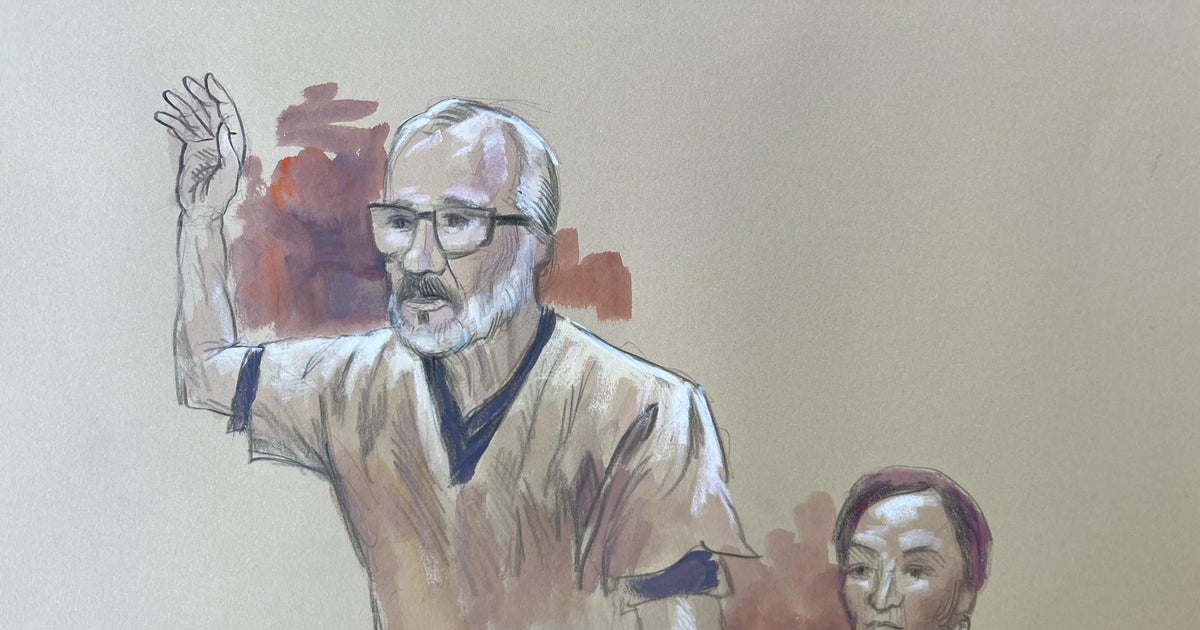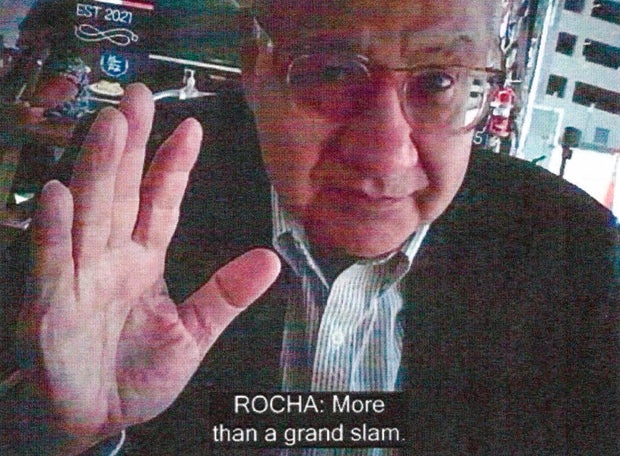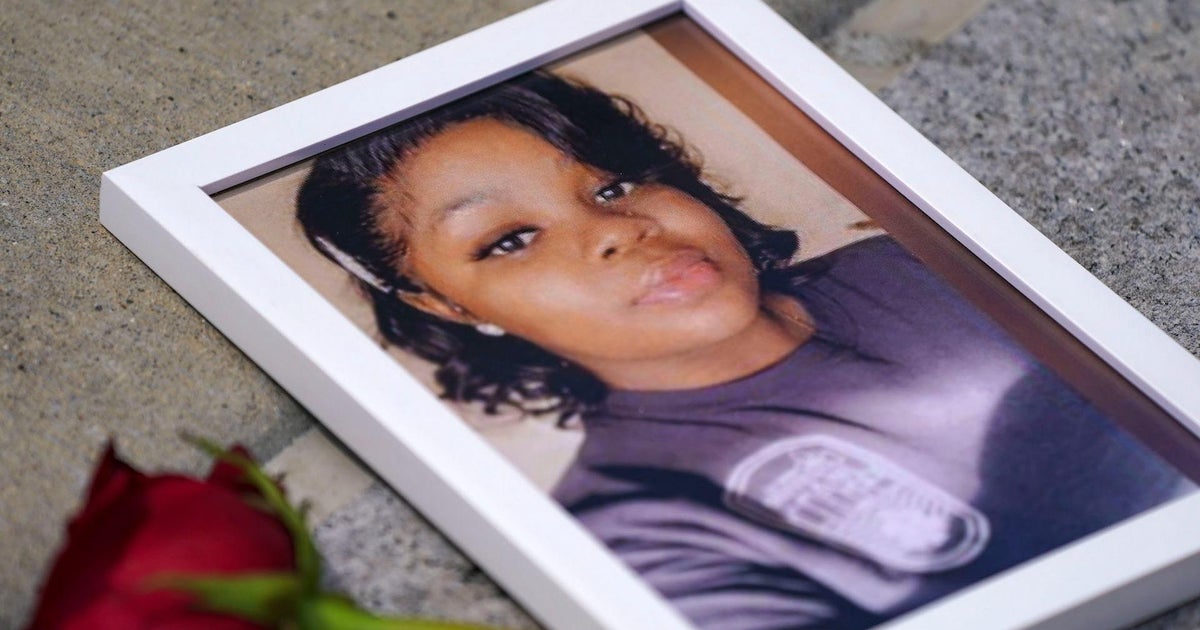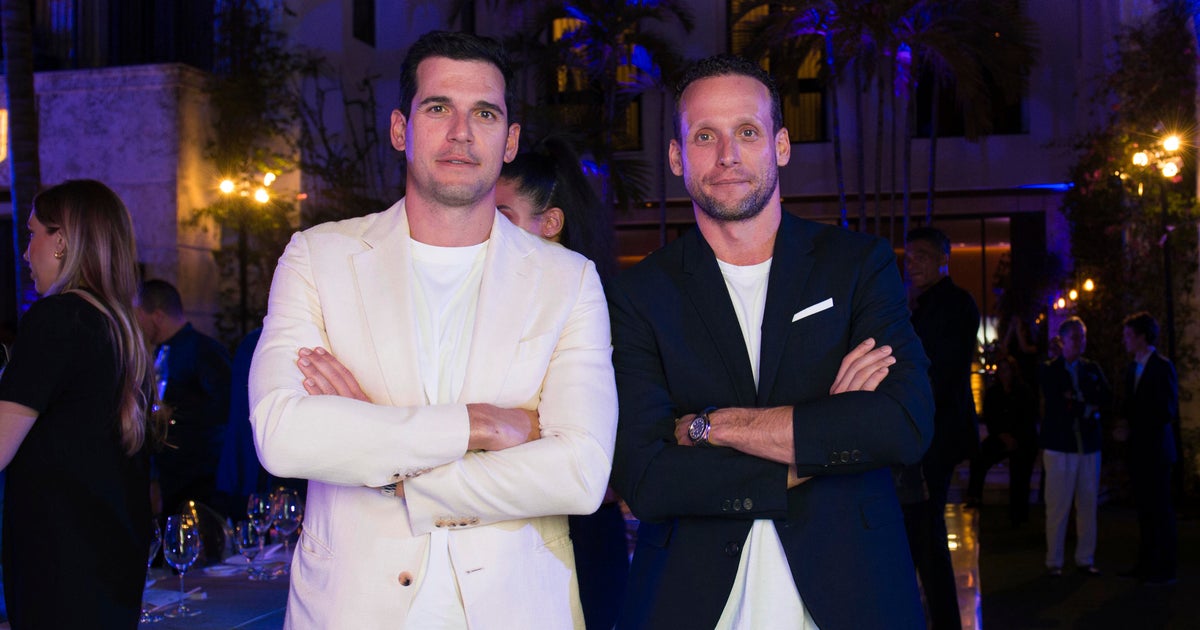CBS News
Victor Manuel Rocha, ex-U.S. ambassador who spied for Cuba for decades, sentenced to 15 years

Washington — A former U.S. ambassador formally pleaded guilty Friday to working for Cuba’s spy service for decades and was sentenced to 15 years in prison, bringing a quick end to a case that prosecutors described as one of the longest-running betrayals of the U.S. government in history.
Victor Manuel Rocha, the former U.S. ambassador to Bolivia, was indicted in December on charges that he spied for Cuba’s intelligence agency for more than 40 years. Rocha, who lives in Miami, originally pleaded not guilty in mid-February, then reversed course later that month.
The case’s resolution was briefly in doubt during a hearing on Friday when U.S. District Judge Beth Bloom questioned whether a plea deal Rocha struck with prosecutors was tough enough, since it lacked restitution for possible victims and did not revoke Rocha’s U.S. citizenship. Prosecutors argued that 15 years was sufficient given the 73-year-old would likely die in prison.
The plea deal was ultimately amended to include restitution for potential victims, which will be determined at a later time. Denaturalization is also possible as a civil action down the line.
Rocha’s work for Cuba
Lothar Speer
Little has been revealed about what Rocha did to help the communist regime or how he may have influenced U.S. policy while he worked for the State Department for two decades. He held high-level security clearances that gave him access to top secret information, according to the indictment, which could have made him a valuable asset to Cuba, which has long had hostile relations with the U.S.
But Rocha was not charged with espionage, and instead was accused of acting as a foreign agent, which the Justice Department refers to as “espionage lite.” Acting as a foreign agent carries a shorter prison sentence.
Attorney General Merrick Garland has described the case as “one of the highest-reaching and longest-lasting infiltrations of the U.S. government by a foreign agent.”
Born in Colombia, Rocha moved to New York when he was 10 years old after his father died. His family lived with his uncle in Harlem, supported by his mother’s job in a sweatshop sewing factory and food stamps. In 1965, a scholarship to attend Taft School, an elite boarding school in Connecticut, changed the trajectory of his life, he told the school’s alumni magazine in 2004. But while there, he experienced discrimination and considered suicide after his closest friend refused to be roommates with him over the color of his skin, he said.
Investigators alleged Rocha was recruited by Cuba’s spy agency in Chile in 1973 after he graduated from Yale University. That same year, Chile’s socialist president, Salvador Allende, was ousted in a U.S.-backed coup.
He became a naturalized U.S. citizen in 1978 and also holds degrees from Harvard and Georgetown universities. His career at the State Department began in 1981 and included various positions in Latin America. He briefly held an influential role at the White House National Security Council during the Clinton administration. His career at the State Department culminated in an ambassadorship in Bolivia from 2000 to 2002.
As the ambassador to Bolivia, Rocha warned Bolivians that electing leftist coca farmer Evo Morales, a protege of Fidel Castro, as president would jeopardize U.S. aid to the country. The intervention was credited with helping boost Morales’ standing, and he thanked Rocha for being his “best campaign chief,” the New York Times reported in 2002.
Cuba also fell under Rocha’s purview during his stint at the National Security Council and while he was posted at the U.S. mission in Havana in the 1990s. After leaving the State Department, he was an adviser to the commander of the U.S. Southern Command, whose area of responsibility includes Cuba.
His positions within the government would have given him compartmentalized access to information involving Cuba, including U.S. assessments of the Cuban regime, biographic profiles, details about covert programs run by the U.S. and diplomatic reports from across the world about the Cubans, according to John Feeley, a former U.S. ambassador to Panama who once considered Rocha a mentor.
“He would have been enormously valuable to them,” Feeley told CBS News.
The State Department and the intelligence community are assessing the possible damage to national security, State Department spokesman Matthew Miller told reporters after Rocha’s arrest.
An attorney for Rocha, Jacqueline Arango, did not return a request for comment.
“The shock is complete”
Department of Justice / AP
Details about how the FBI began to suspect Rocha had acted as a covert agent for Cuba are unclear, other than it received a tip before November 2022, according to court documents. In the following months, the agency surveilled Rocha as he met with an undercover FBI agent whom he believed to be a representative of Cuba’s spy agency.
On Nov. 15, 2022, the undercover agent sent the retired diplomat a WhatsApp message “from your friends in Havana,” the documents said.
“I know that you have been a great friend of ours since your time in Chile,” the undercover agent told Rocha in a subsequent phone call. The two agreed to meet in person the next day.
During their conversations over the next year, Rocha referred to the U.S. as “the enemy” and said “what we have done” was “enormous” and “more than a grand slam,” court documents said.
“My number one concern; my number one priority was … any action on the part of Washington that would — would endanger the life of — of the leadership, or the — or the revolution itself,” Rocha allegedly told the undercover agent.
The complaint also alleged that Rocha met with his Cuban handlers as recently as 2017, first flying from Miami to the Dominican Republic using his American passport, then using a Dominican passport to fly to Panama and onto Havana.
Rocha said Cuba’s spy agency had instructed him to “lead a normal life,” and he eventually created a cover story “of a right-wing person” to conceal his double life, according to the complaint.
Feeley, who worked under Rocha when he was the deputy chief of mission for the U.S. Embassy in the Dominican Republic, said in recent years Rocha became an “over-the-top Donald Trump guy.” The two had kept in touch since their posting in the Dominican Republic, but when Feeley last saw Rocha in 2019, the previously apolitical Rocha had “gone down a Trump-MAGA rabbit hole,” as Feeley put it.
“It was really uncomfortable,” Feeley said, adding that he and his former colleagues never suspected it was a cover. “I’ve already been through the whole cycle of grief here. The shock is complete.”
Feeley resigned as U.S. ambassador to Panama in 2018 over policy disputes with the Trump administration.
Rocha did his job well and was generous with his mentoring, but he also had a strong ego and thought he was smarter than others, Feeley said.
On June 23, 2023, Rocha held his last meeting with the undercover FBI agent at an outdoor food court behind a church in Miami. Prosecutors said Rocha became angry when the agent asked, “Are you still with us?”
“I am pissed off,” Rocha allegedly responded, saying it’s “like questioning my manhood. … It’s like you want me to drop them … and show you if I still have testicles.”
Why did a septuagenarian who had managed to escape detection for decades and had long been retired from government service bite so easily at the FBI’s outreach?
“My feeling is that he felt irrelevant,” Feeley said. “You do something for 40 years, it gives you kind of a sense of purpose, and there’s no gold watch at the end of it.”
Ivan Taylor contributed reporting.
CBS News
Manchin says he doesn’t think the government will shut down

Watch CBS News
Be the first to know
Get browser notifications for breaking news, live events, and exclusive reporting.
CBS News
Rich McCormick says he is a “hard no” on the new spending bill

Watch CBS News
Be the first to know
Get browser notifications for breaking news, live events, and exclusive reporting.
CBS News
Former “That ’70s Show” star Danny Masterson appeals rape conviction

Actor Danny Masterson, who is serving a sentence of 30 years to life in prison, is seeking to overturn his conviction for the rape of two women, with his attorneys arguing he did not receive a fair trial.
A Los Angeles jury found Masterson guilty last year of two counts of rape by force or fear for assaulting two women at his Hollywood Hills home in separate incidents in 2003 — during the same time he was starring on the Fox TV’s “That ’70s Show.” The jury deadlocked on the case involving a third alleged victim. The May 2023 trial followed a mistrial in November 2022.
Masterson, 48, is incarcerated at California Men’s Colony, a minimum- and medium-security prison in San Luis Obispo County.
Cliff Gardner, the attorney handling Masterson’s appeal, filed an appellant’s opening brief Tuesday that alleges witnesses told different versions of their stories over time. The brief also argues that evidence that would have helped Masterson’s defense was not presented due to what Gardner describes as erroneous rulings by the court. Gardner argues in the court filings that those factors support reversing the convictions.
LUCY NICHOLSON / Getty Images
Masterson’s defense argued at trial that he knew both women socially and his sexual relations with them were consensual.
“It is true, of course, that a defendant is not entitled to a perfect trial. He is, however, still entitled to a fair one,” the brief reads. “Danny Masterson received neither. Reversal is required.”
During the trial, one of the women Masterson was later convicted of raping broke down on the witness stand as she testified that he choked her and smothered her with a pillow when she tried fighting back as he assaulted her, according to the Associated Press.
“I could not breathe,” she said, crying.
When the prosecutor asked what she was thinking at the time, she said she feared for her life, AP reported.
“That he was going to kill me,” she said. “That I was going to die.”
She later testified Masterson took out a gun from inside his bedside table and told her to be quiet when they heard voices at the door. She told jurors she was in and out of consciousness through the night.
Masterson and the victims were members of the Church of Scientology, which became a central focus of the case as the women alleged they were stalked and harassed after reporting the allegations to police.
They sued Masterson and the church years earlier in connection with those accusations.
During the trial, Deputy District Attorney Reinhold Mueller told jurors the church had retaliated against the victims for reporting the the crimes — the rape of a 28-year-old woman in April 2003 and assault of a 23-year-old woman, also that year.
“What happened after they were drugged, they were raped by this man over here,” Mueller said, as he pointed across the courtroom toward Masterson during closing arguments. “You have an opportunity to show there is justice. It does exist.”
The church released a statement at the time refuting the allegations.
“The church has no policy prohibiting or discouraging members from reporting criminal conduct of anyone, Scientologists or not, to law enforcement,” the statement reads. “Quite the opposite, church policy explicitly demands Scientologists abide by all laws of the land. All allegations to the contrary are totally false.”
In the newly filed brief for Masterson’s appeal, Gardner alleges the victims changed their stories “dramatically” over the years and had a financial motive to do so. Gardner argues in court documents that though the statute of limitations to file a lawsuit seeking damages had expired before the trial, under state law it would be revived if Masterson was convicted of forcible rape involving multiple victims.
Gardner says in the brief that a court ruling prevented evidence related to that argument from being admitted at trial.
He also states in the court filings that some witnesses died before the case went to trial, more than a decade after being reported to law enforcement, and alleges that police lost a tape-recorded witness interview that would have helped Masterson’s defense.
After the six-day trial resulting in Masterson’s convictions, one of the women he was convicted of raping released a statement saying she was relieved he had been found guilty.
“I am experiencing a complex array of emotions – relief, exhaustion, strength, sadness – knowing that my abuser, Danny Masterson, will face accountability for his criminal behavior,” said a statement from one of the women whom Masterson was convicted of raping at his home in 2003.










